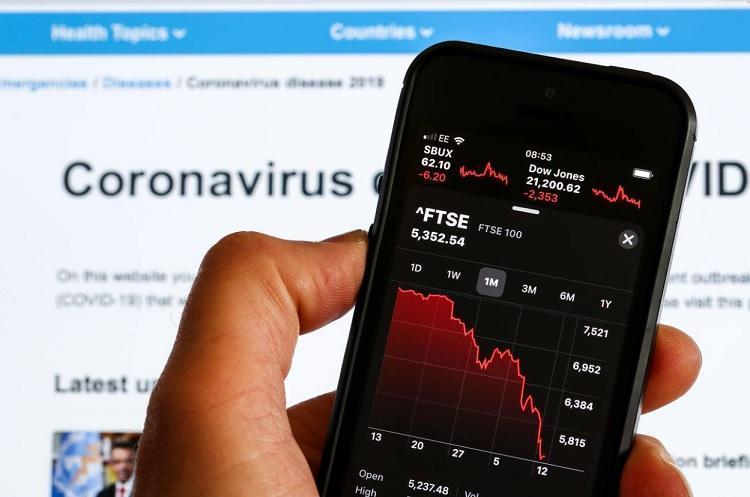
Alamy Photo
The stock market corrections that brought about the coronavirus scare have come as a surprise for many investors. While there are valid reasons for these sharp decreases of 25-30 percent in the last two weeks (such as economic slow-down, expected consumption decrease in 2020), we would be making an incomplete analysis if we do not see the overall financial context and fragility that underlie these crises.
The risks have been building in the financial system for decades. As nicely put by John Plender of the Financial Times on March 4, since the rise of Reaganism in the 1980s, central banks have been following “asymmetric monetary policy whereby they supported markets when they plunged but failed to damp them down when they were prone to bubbles.” In a way, the central banks are seen as the Supermen who always save the system whenever needed (as we saw in the last days). Although these active policies of the last 40 years palliatively solved the issues in the short-run, this came at a price: The combined effect of these actions has been excessive risk-taking by the financial sector (which led to the 2008 crisis) and the increase of debt-driven zombie companies (the current context). While we all agree that reasonably low interest rates are beneficial for corporate activity, we should also acknowledge that ultra-low interest rates as currently practiced by FED and ECB are not sustainable neither. Put differently, the extreme loose monetary policy enabled the banks to continue the credit lines to the financially irresponsible companies, which otherwise would not be able to find financing. The very low interest rates prevented the Schumpeterian principle of “creative destruction” from doing its trick and created some default lines in the capitalist system. In fact, it is breeding a new wave of zombie companies that cannot survive in a normalized interest rate world. The FT article quotes the recent OECD’s estimate (December 2019 report) of non-financial corporate indebtedness to be at $13.5 trillion, double the level in real terms against December 2008.
If we are to demonstrate the extent of the “zombie company” problem, perhaps we can employ the financial metric Tobin’s Q. This measure shows the financial ratio of market value of a firm to the replacement cost of the firm’s asset. It is based in the hypothesis that in the long run the market value of the company should roughly equal the cost of replacing the company’s asset. If the ratio is significantly higher than 1, then one could suspect the existence of an over-valued and debt-driven zombie company.
The below table shows the average adjusted Tobin’s Q for some selected stock markets from the world, including Turkey’s BIST 100 index as of March 10,2020. Tobin’s Q figures have been adjusted for long-term earnings growth as well as for equilibrium Cap/GDP levels. In absolute terms, average Tobin’s Q values in the first column signal high levels of market valuations for the U.S., Australia and the U.K. On the other hand, the German stock market has a reasonable level, whereas Turkish stocks stand at extremely cheap levels.

The second column displays the percentage of companies in the stock market that have an adjusted Tobin’s Q of 3 or higher. The shares of such “potential zombie” companies in the U.S. and Australia stand at 20 percent and 13 percent. Speculatively speaking, some of these U.S. and Australian companies would not be able to survive if it were not for the cheap financing. It is interesting to note the average debt/ capitalization ratio of 51 percent for the S&P 500, suggesting the extensive use of leverage.
According to the analysis, Germany and Turkey do not seem to have the issue of “zombie companies” at this point in time.
The excessively high valuations, as well as the high debt levels particularly in the non-financial corporate sector, have contributed to the current fragility of the financial system. There is no doubt that the coronavirus has been an ugly catalyst for the recent stock market correction, however it is not the main cause. It is the overall risk that accumulated in the system over the years that creates the vulnerability. Here, the FED and other central banks have some blame to take.
During the last decade, on the whole, the Turkish Central Bank did not pursue a policy of extremely low interest rates. At the same time, we all know that Turkish policymakers prefer lower interest rates to higher levels for economic growth for the understandable reasons of economic growth stimulation and job creation. Nevertheless, we can all learn from the FED experience in the U.S. and observe that the ultra-low rates are not ideal neither due to the risk of “zombie companies.” In sum, too much of a good thing could be bad, and one should avoid extremely low (i.e. near-zero) interest rates to prevent excessive risk-taking in the overall economy.